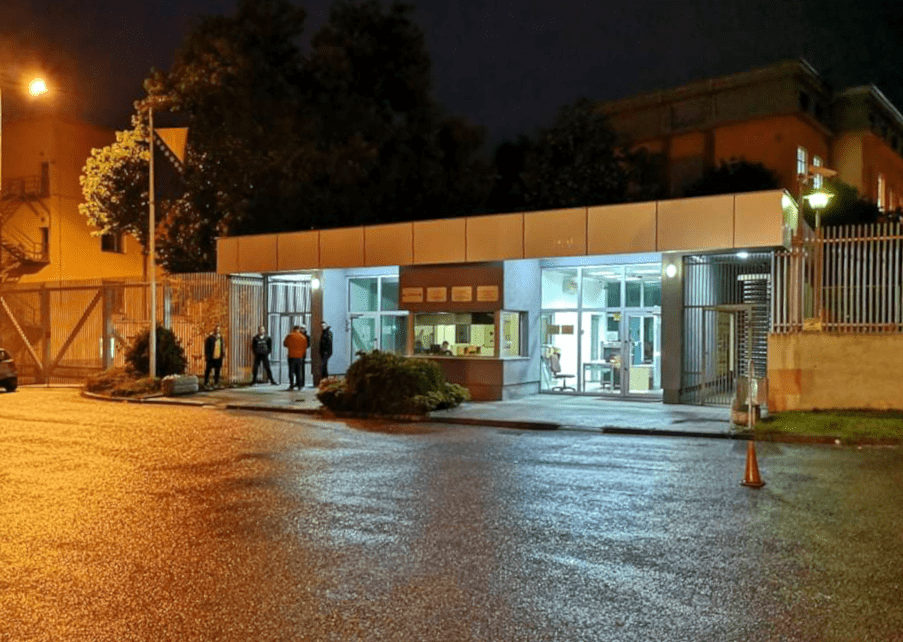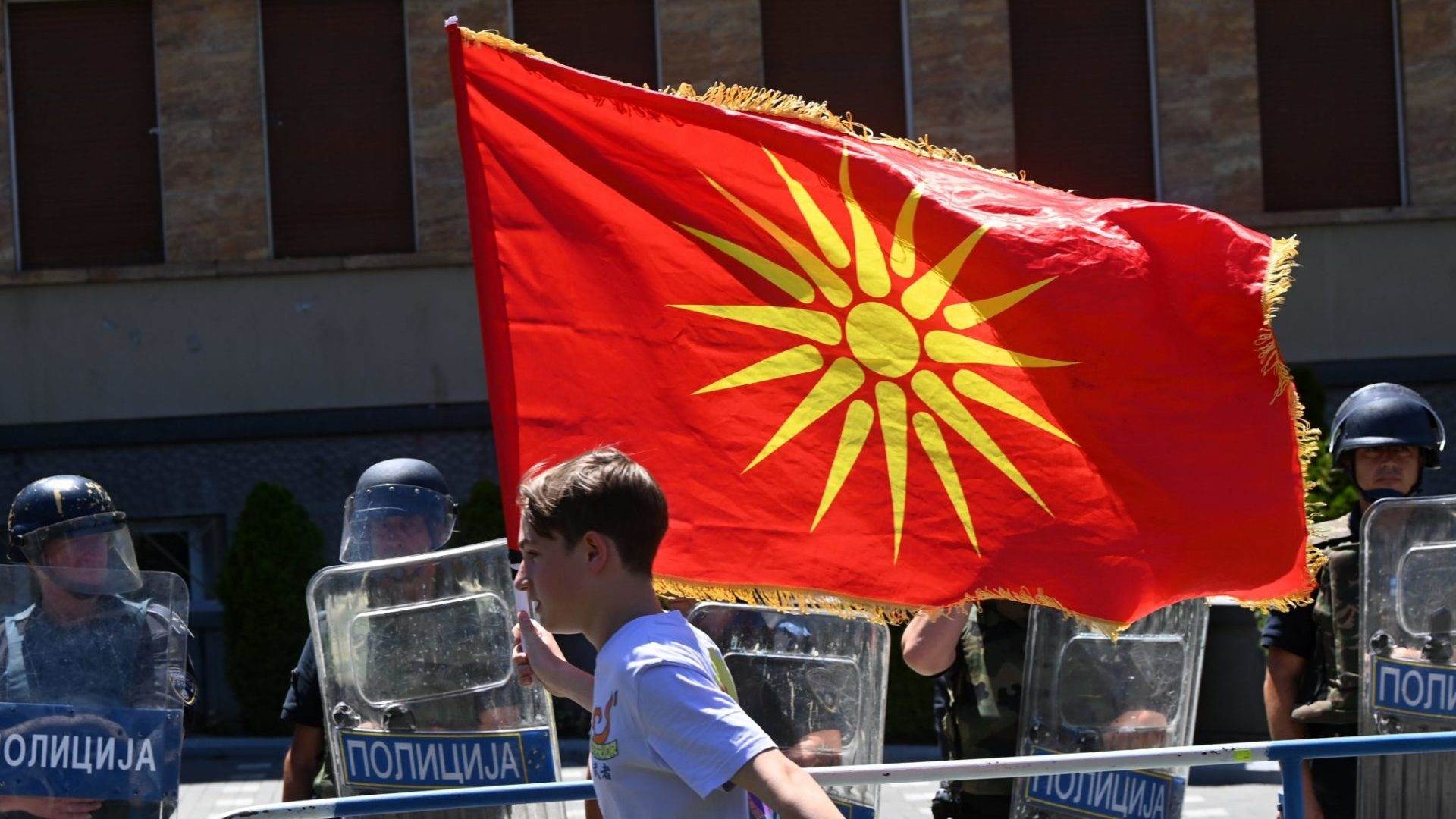This post is also available in: Bosnian
While politicians in Bosnia’s majority Bosniak-Croat entity praised Mladic’s arrest on Thursday as a “step towards justice”, the reaction in Banja Luka, the de facto capital of Bosnia’s predominantly Serb entity Republika Srpska, has been muted, with some criticising the move.
A wartime member of Bosnia’s Presidency, Haris Silajdzic, said that the arrest of the Bosnian Serb wartime military commander is good news for the families of victims of genocide, ethnic cleansing and other crimes.
In a statement for public broadcaster BHT, he argued that the bad news is that “Mladic’s project is still being implemented in Bosnia, through the toleration and denial of genocide, through action against government institutions and Dayton Peace Accords, and because wartime refugees still have not returned to their homes in Republika Srspska.”
But, Silajdzic concluded: “The arrest of Ratko Mladic is good news for those who want to live well, since this is impossible without revealing the truth.”
Mladic was arrested on Thursday in northern Serbia, and will likely be transferred to the International Criminal Tribunal in the former Yugoslavia, ICTY, in the coming week to face charges of genocide, including for the massacre at Srebrenica, crimes against humanity, and other counts.
Zlatko Lagumdzija, the leader of the mainly Bosniak Social Democratic Party, SDP, welcomed the arrest of Ratko Mladic as a major step towards justice for all victims of genocide, crimes against humanity and war crimes committed in Bosnia and Herzegovina between 1992 and 1995.
“The arrest of Mladic will sober the political forces in Bosnia and Herzegovina who deny genocide in Srebrenica,” Lagumdzija said.
The families of the victims of the crimes for which Mladic is accused, meanwhile, have said they are glad he has been captured.
Hariz Halilovic, a Bosnian expatriate from Srebrenica, who lost numerous family members and friends in the genocide there, and who today lives in Melbourne where he works as a university researcher, told Balkan Insight that he didn’t jump for joy when he finally heard the news he’s been waiting for 16 years.
“I didn’t jump for joy, there was no reason for celebration, nor could that shell of what was left of the once red-faced arrogant and aggressive Serb general provoke in me a wish for revenge,” Halilovic told Balkan Insight, arguing that Ratko Mladic was not running a private war.
“He was the official commander of the RS Army, paid by the Serbian government, and in charge of creating a ‘Lebensraum’ for Republika Srpska. And he did a good job in that regard. Thus, so long as the legitimacy of RS is not readdressed there won’t be true justice in Bosnia,” Halilovic said.
Meanwhile, the Prime Minister of the Republika Srpska, Aleksandar Dzombic, said that the opinion of the RS Government is that all war crimes suspects should be brought to justice and their guilt should be proven or disproven in a legal process.
“In this context, I believe that the former commander of the RS Army, Ratko Mladic, will have a chance to state the arguments in his defence. Serbia, the Serb people and the RS should not be hostages of anyone’s crimes,” said Dzombic.
He said that if the crimes are proven, guilt can never be collective, but only individual.
“No one should rejoice over this arrest; quite the contrary, everyone should comply with the assumed international obligations in relation to the arrest of war criminals in order for all indictees to be arrested and prosecuted, including those responsible for crimes committed against the Serbs. This is the only way to bring about true reconciliation and the possibility to build a joint future,” Dzombic added.
There were no protest gatherings in Banja Luka in the wake of Mladic’s arrest, but people interviewed on the street expressed their dissatisfaction with the capture of the Bosnian Serb military leader.
Ognjen Stankovic, a 21-year-old student of economy from Banja Luka, told Balkan Insight that he is dissatisfied with Mladic’s arrest, maintaining that it showed that the Mladic case has become a deeply political matter.
“Tadic has sold one of the biggest Serb generals for the European Union. History certainly will not forgive him for that. Tadic will be remembered as a traitor of the Serb people and not for the fact that he led Serbia into the EU,” Stankovic concluded.
The Director of the Centre for the Investigation of War Crimes in Republika Srpska, Janko Velimirovic, believes that the entity’s institutions must provide all necessary assistance for the defense of Ratko Mladic in the ICTY.
“We expect that the court proceedings will be an opportunity to present all arguments and facts in favor of truth – as in the trial of Radovan Karadzic – to prevent the building of malicious and distorted images about the political and military leadership of Republika Srpska,” Velimirovic said.
Mladen Bosic, the President of the opposition Serb Democratic Party, SDS, says he was not surprised to hear the Government in Serbia had arrested Ratko Mladic.
“The goal of such policy is to show a readiness to comply with all requests from the West, but the Serbian government receives nothing in return. The Serbian authorities have proven their readiness to do everything that is requested by the Hague Tribunal a long time ago, when they delivered the complete political and military management of the Serbs, starting with Slobodan Milosevic, Vojislav Seselj, Radovan Karadzic and all others,” Bosic said.
He said that he is worried by the euphoria in Sarajevo, which, he said, is seen among the common people. “This should show their general feelings about the Serbs, and not about Mladic and the impression resulting from this situation is that they see all Serbs as equal,” Bosic said.


